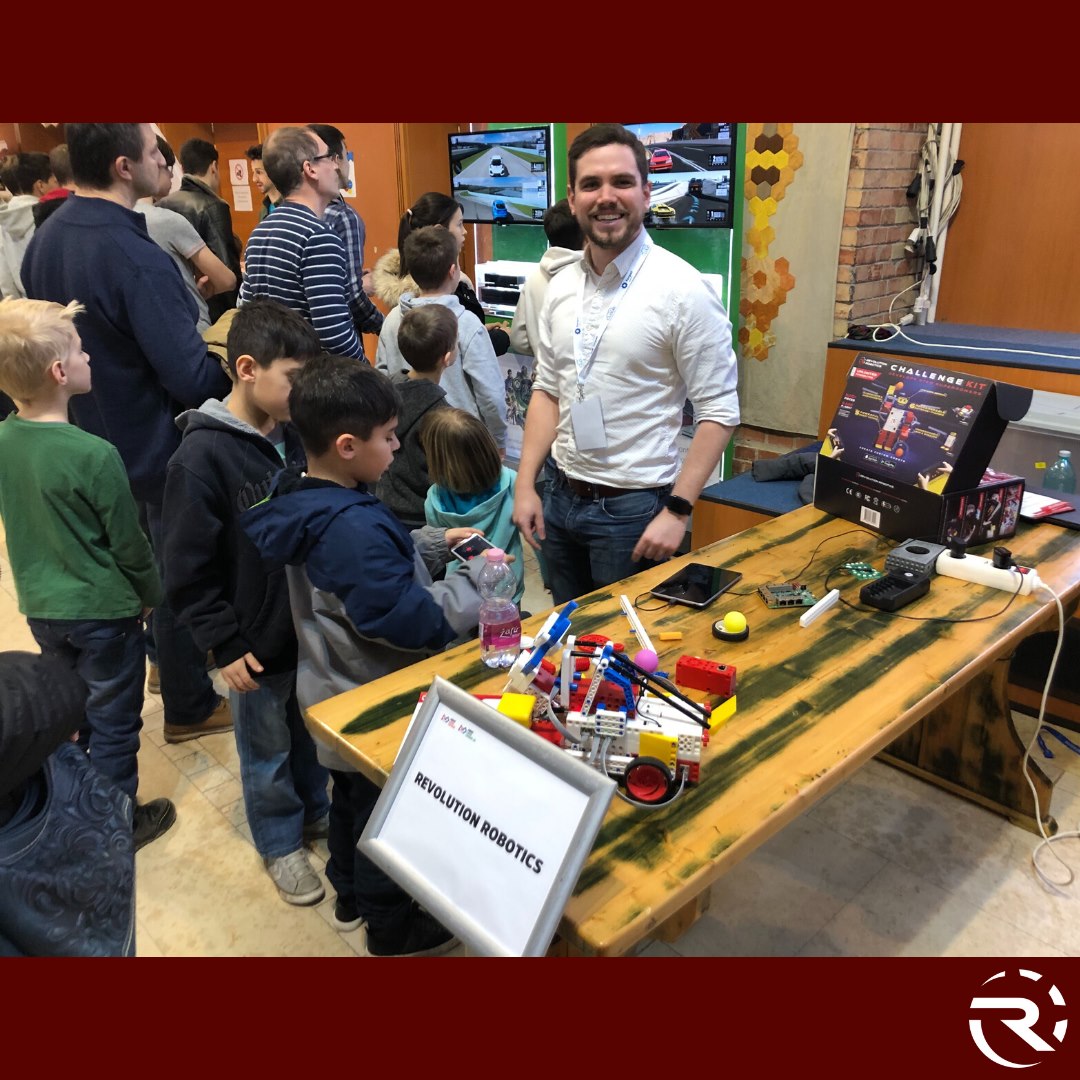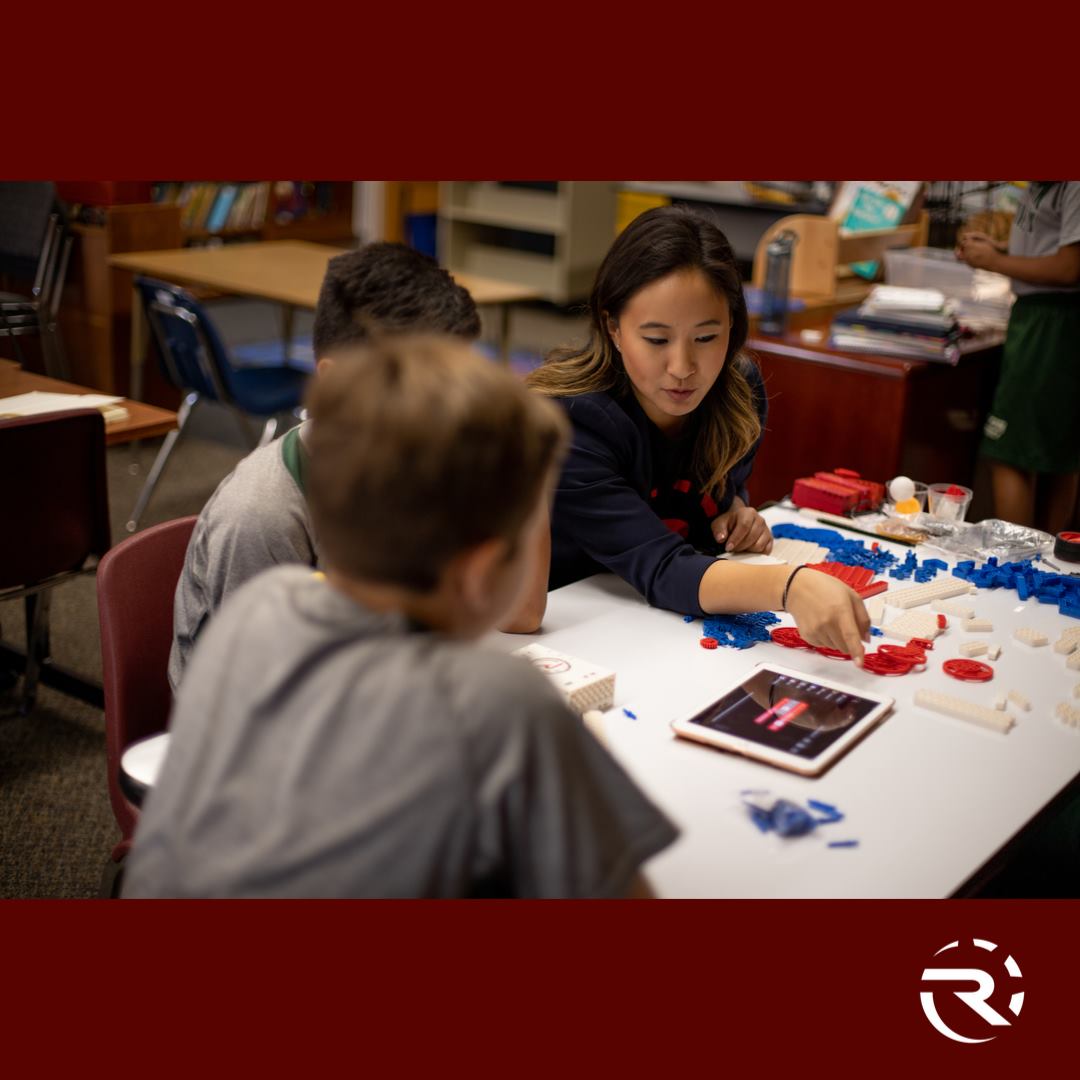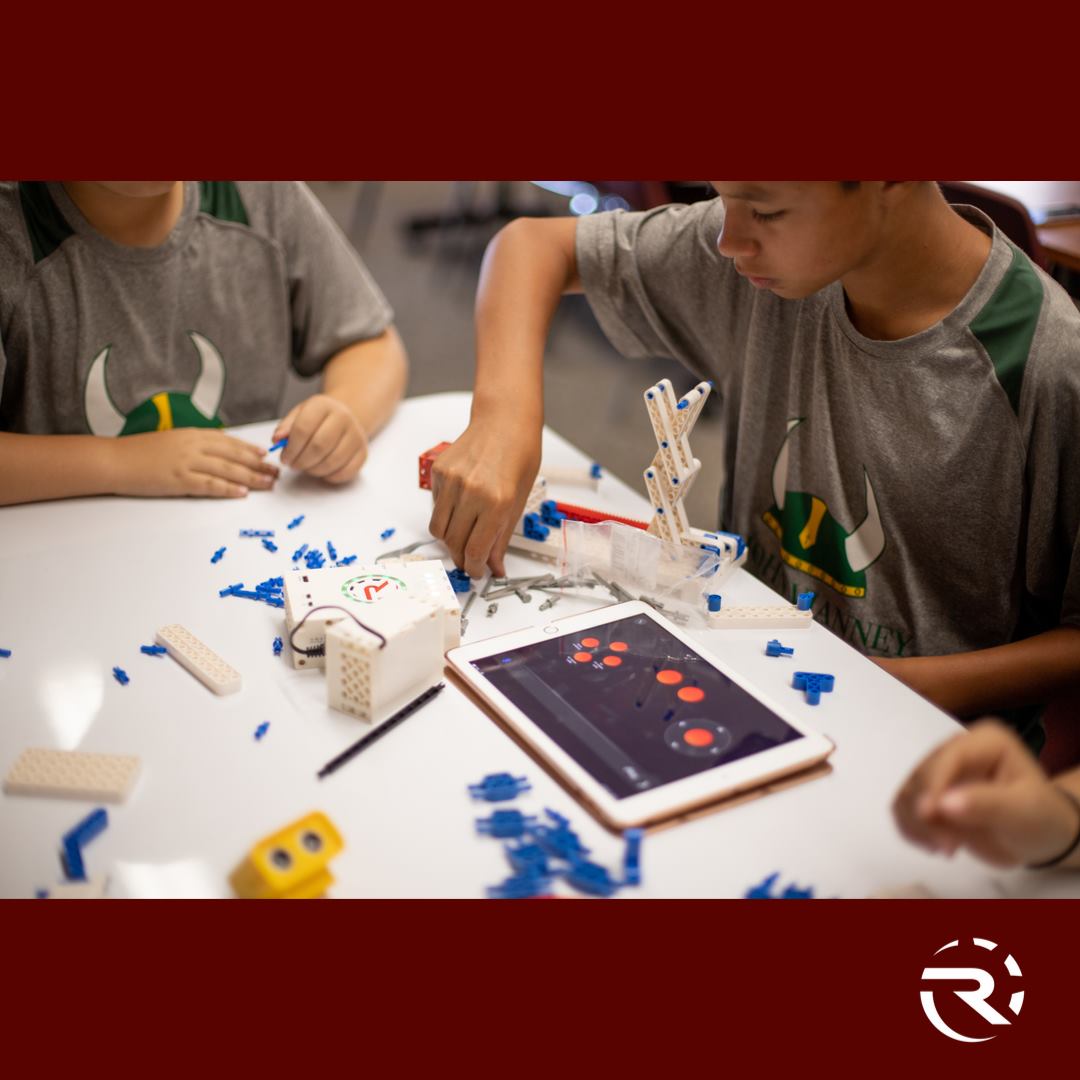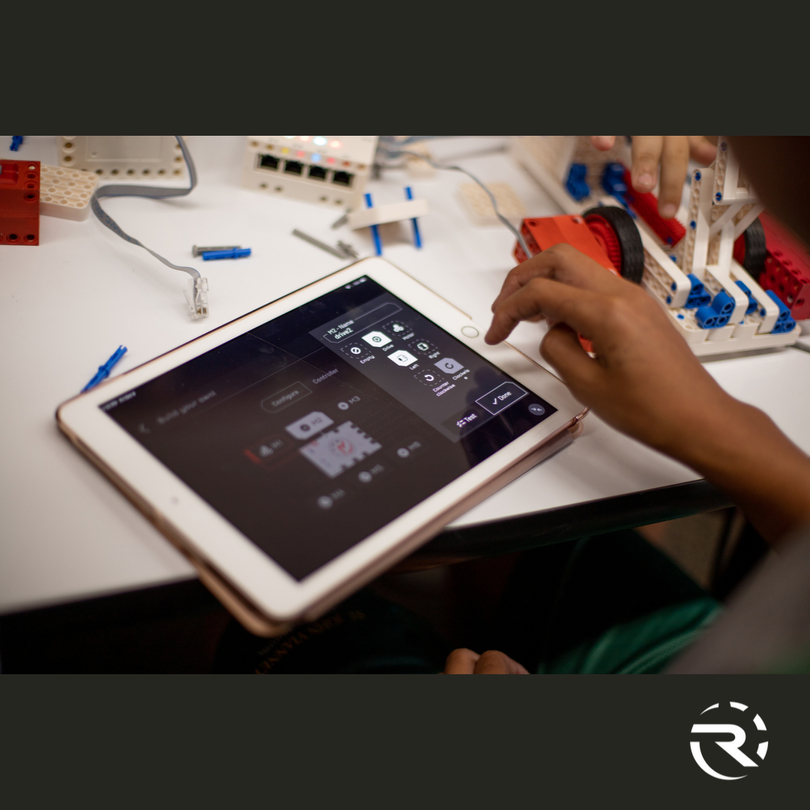New non-profit startup in Budapest helps children to learn everything about robotics

Jared Schrieber has decided that his latest startup will be nonprofit and this time he will be setting up in Budapest. Revolution Robotics is designed to help as many kids as possible to learn all about robotics in a fun way, Forbes reports.
In September 2015 at St. Simon Elementary School in Los Altos – in the heart of Silicon Valley – a group of kids watched in awe as Joe Eder, a NASA engineer taught them their first lesson about robotics. Among those kids was the then 13-year-old, half-Hungarian Atila, whose father Jared Schrieber, was also an engineer. He joined the club shortly afterwards.
“When I first showed up, it was chaos,” says Jared. “The kids and Joe were just really frustrated because something didn’t work with the robot: the ‘brain’ couldn’t control the body anymore. Meanwhile, most kids just got bored and tired.”
After the program outgrew school, Jared decided to make a robot lab out of his own garage: he hosted more and more teams, and over time, he began organising robotics competitions. “I had no experience in robotics, I’ve learned with my kids. That’s why it was so much fun.”

Source: facebook.com/RevoRobotics/
Although Jared initially attended his son’s afternoon club for fun, the afternoons planted a seed of an idea in his mind. Despite the growing popularity of robotics circles across America, not everyone had the opportunity to join; equipment can often cost over thousands of dollars, which not all schools could afford. “I thought it would be great if we could give other kids a chance to play around with robotics.”
Jared decided in 2018 to set up a new non-profit startup, to introduce the world of robotics to as many children as possible.
With his Hungarian-born wife and three children, they were moving back to Hungary at the time, so it was clear that the development background of his new, non-profit startup, Revolution Robotics, would be set up in Hungary as well. Development is Dávid Dudás’s responsibility, who after more than eight years at Thyssenkrupp decided to jump headlong into the startup life. He worked at Thyssenkrupp as a software project manager, but he was fond of robots from a young age. That is why he became a co-founder of the Hungarian Association of Robot Builders, which Jared found him through.

Source: facebook.com/RevoRobotics/
They first met in September 2018. David came to the interview with three self-designed robots, and at the end of October, they began hardware development. At first, David worked alone, but the prototype was completed the same year: the parts were then 3D printed and hand-painted.
Today, the product of Revolution Robotics a 500-piece kit from which children could build the robot they want – just like with Lego, the combinations are almost endless. An application that works on both Android and Ios helps children to develop, program, and control the robots. They can even download new challenges every week, so they never get bored.
From designing the robots and their parts, everything happens in Budapest, and the team has now expanded to eight people.
They see their advantages in being cheaper and more straightforward than their competitors, but they do not lag behind in knowledge. A Revolution Robotics robot is currently 249 $, but David plans to sell a cheaper set for 99 $ in the future.
They launched a Kickstarter campaign last year, raising 25,000 $. During the campaign, their supporters were promised that they would receive their ready-made robotics kit by Christmas. David and his team accomplished it, even though they had no more than a prototype in May. The Kickstarter campaign served primarily as a market validation: in addition to the amount collected here, more than one million dollars was invested in the company, partly through corporate (US) government grants, partly from individuals, and Jared’s previous successful project, Infoscout.

Source: facebook.com/RevoRobotics/
Revolution Robotics is no short of capital but wants to get on a sustainable path. Their revenue mainly comes from the kits sold so far. In their first year, thousands of robots were made, some of which went to Kickstarter backers, but one of the world’s largest retailers, Walmart has already ordered some as well.
Revenue is continuously being reinvested as their long-term goal is to help as many schools as possible set up a robotics club. Their primary market is America, but since almost all the work is done in Hungary, they are also expanding here. In many cases, they are not asking for money for programmable robots from Hungarian schools.
Hungary is in no shortage of robots recently, read our other article about the topic. In this article, we wrote about a café in Budapest where robots serve you your order. In this other one, you can read about a cleaning robot prototype that was tested at the Budapest airport.
Today there are about a hundred school clubs where kids use Revolution Robotics robots. They have teams in New York, Chicago, Phoenix and Silicon Valley. So the robots have reached about five hundred children so far. One of their long-term goals is to organise robot-building competitions. This year they will host events in Hungary and the United States, mainly for primary schools.

Source: facebook.com/RevoRobotics/
They are also helped by the experience of one of their board members, Jason Morrella, former chairman of the Robotics Education & Competition Foundation. The Morrella-run foundation hosts one of the world’s largest robot-building competitions, the VEX IQ Challenge, which involved over 30,000 students and their robots last year. In addition to Morella, Dave Lavery, founder of the NASA Robotics Alliance Program, is also the member of Revolution Robotics.
Their robots are primarily aimed at children over the age of eight, but they are already working on developing their app to open to children who cannot read. In their version, instead of letters, icons indicate when to do what.
“Robotics is the perfect way to motivate kids in their scientific or engineering careers,” says David. Jared adds: “There is a huge shortage of engineers and scientists all over the world. The challenge is how to make children more interested. If we can make the design and programming of robots fun, we might be able to inspire them to continue.”
“Robotics is the best way to learn the basics of math, physics and coding. If we wait until high school, it’s too late.”
Source: Forbes.hu





